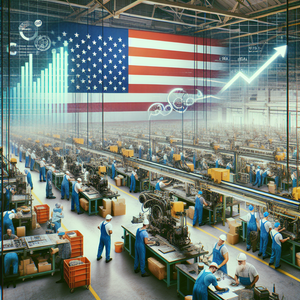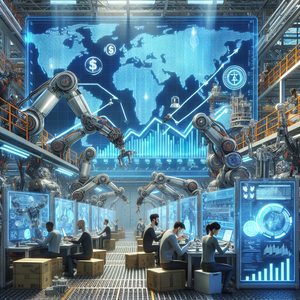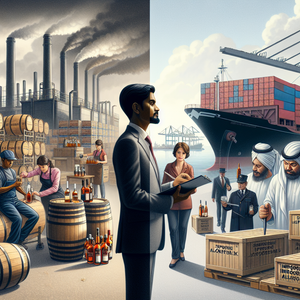
Navigating the Impact of Tariffs on US Manufacturing Jobs: Career Opportunities and Industry Insights
The introduction of tariffs in recent years has profoundly changed the landscape of U.S. manufacturing. These trade policies, aimed at protecting domestic industries and creating local jobs, have produced a wide range of outcomes. While sectors like steel manufacturing have seen incremental job growth, others, such as industries that rely heavily on steel, have faced significant losses. For example, protective tariffs have contributed to the creation of approximately 1,000 jobs in steel production but resulted in the loss of around 75,000 jobs in steel-using industries. This stark disparity underscores the intricate and far-reaching consequences of trade policies on the economy. Manufacturing, which accounts for 10.2% of the U.S. economy, continues to grapple with challenges like rising raw material costs, disrupted global supply chains, and reduced labor demand in certain areas. Despite these obstacles, new opportunities have emerged, particularly in roles focused on mitigating tariff-related risks, improving supply chain stability, and streamlining manufacturing processes. This article explores 15 critical roles that have gained prominence in response to these evolving dynamics, offering insights into their responsibilities, skills, and relevance to the manufacturing sector.
Job Summaries:
Supply Chain Analyst:
- Supply Chain Analysts play a pivotal role in ensuring manufacturing operations remain efficient and cost-effective amidst heightened tariffs and disrupted trade routes.
- They evaluate global supply chain risks, propose alternative sourcing strategies, and use data-driven insights to improve performance metrics.
- A degree in supply chain management, logistics, or business analytics is crucial, along with proficiency in tools like SAP, Oracle, and Tableau.
Trade Compliance Specialist:
- Trade Compliance Specialists ensure companies align with international trade laws amidst fluctuating trade regulations.
- They monitor changes in tariffs, develop compliance strategies, and train employees on trade policies.
- A background in international trade, law, or business is essential, with certifications like Certified Customs Specialist (CCS) or Licensed Customs Broker (LCB) enhancing credibility.
Manufacturing Operations Manager:
- Manufacturing Operations Managers tackle rising raw material costs due to tariffs by implementing strategies to maintain productivity and profitability.
- They oversee production teams, manage input costs, and streamline operations using lean manufacturing techniques.
- A degree in industrial engineering or manufacturing management, coupled with process optimization expertise, is required.
Logistics Coordinator:
- Logistics Coordinators ensure efficient transportation of goods despite tariff-induced disruptions.
- They reroute shipments, negotiate contracts, and resolve supply chain bottlenecks.
- A degree in supply chain management or logistics, strong organizational skills, and proficiency in logistics software are essential for this role.
Economic Policy Analyst:
- Economic Policy Analysts provide insights into the broader implications of tariffs on industries, helping businesses and policymakers make informed decisions.
- They analyze economic impacts, predict market trends, and recommend trade policy adjustments.
- A degree in economics, public policy, or statistics, along with analytical and communication skills, is crucial.
Procurement Specialist:
- Procurement Specialists mitigate the financial strain of tariffs by sourcing materials from cost-effective regions and securing favorable contracts.
- They research suppliers, negotiate contracts, and maintain vendor relationships.
- Expertise in global markets, negotiation, and supply chain management is essential.
Industrial Engineer:
- Industrial Engineers redesign manufacturing processes to reduce dependency on tariff-affected materials while maintaining efficiency and quality.
- They optimize workflows, identify automation opportunities, and adapt processes for alternative materials.
- A degree in industrial engineering and expertise in process optimization are critical.
The imposition of tariffs has undeniably transformed the U.S. manufacturing sector, creating both challenges and opportunities. While some industries have struggled with higher costs and job losses, others have adapted by embracing innovative strategies and hiring skilled professionals to navigate the new landscape. For job seekers, this shift underscores the importance of acquiring relevant expertise in areas like supply chain management, trade compliance, and process optimization. By understanding these emerging roles and their significance, professionals can position themselves at the forefront of a rapidly evolving industry.
Explore More Jobs

